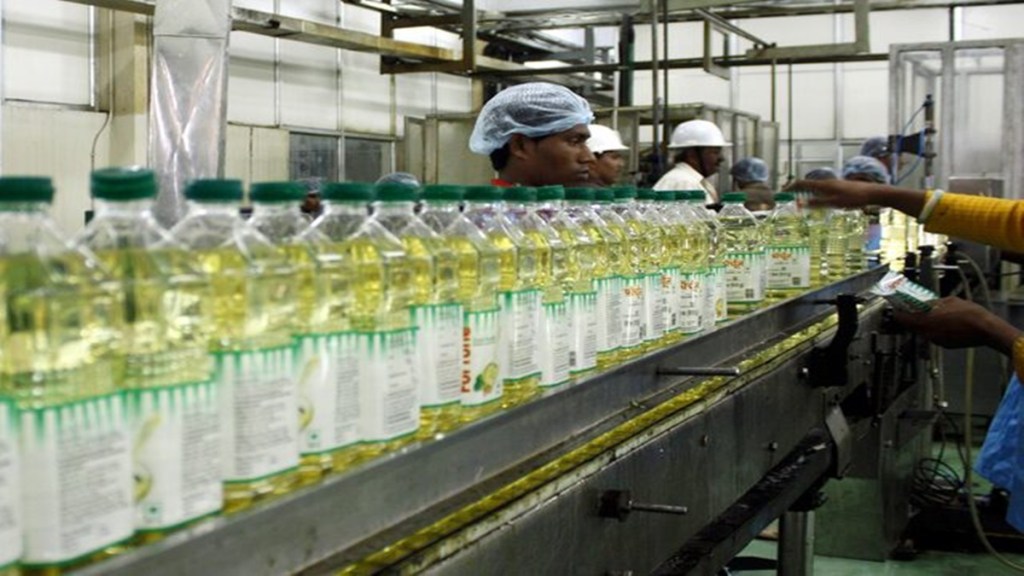India’s edible oil imports declined sharply by 32% to 0.86 million tonne (MT) in April from a year earlier, industry body Solvent Extractors Association (SEA) said on Wednesday.
The volume of import of cooking oil last month was lowest since May 2020, it stated. The shipments of both palm and refined oils fell sharply because of higher global prices and robust domestic oilseeds output.
The dip in volume is largely due to the elevated prices prevailing in the global markets.
Import of refined edible oils from Nepal, estimated at 60,000 to 70,000 tonnes monthly, also affected overall imports and stock positions, SEA stated.
In the first six months of the oil year (November – April), cooking oil imports declined by 8% to 6.5 MT on year, the SEA stated.
Palm oil, which has a 60% in total shipment imports, declined by 53% to 0.32 MT last month, from 0.68 MT a year ago. The crude palm oil shipments declined by 55% to 0.24 MT.
“The import in the last three months reported at very low levels due to reduced demand of palm oil coupled with increased crushing of mustard in the country,” SEA has noted.
“Higher domestic production of oilseeds and high global prices may lead to drop in edible oil imports in the current oil year,” B V Mehta, executive director, SEA told FE.
Mehta stated that overall import of cooking oil during 2024-25 oil year may decline to 15.5 MT from close to 16 MT in 2023-24. He stated that the projected decline in cooking oil in the current oil is despite a rise in consumption of around 0.7 – 0.8 MT annually.
Agriculture ministry has projected a record groundnut (10.42 MT) and soybean (15.13 MT) seeds output.
Edible oil processors also urged the government to canalise the import through some of the government agencies including NAFED and NCCF to manage and regulate flow of refined oil from Nepal to India.
Since India hiked the import duty on edible oil in Sept.,2024, Nepalese refiners started importing large quantities of crude oils and exporting refined oils into India at discount rate under SAFTA agreement at zero duty, SEA stated.
India, the world’s largest edible oil consumer and importer, had edible oil stocks of 1.35 MT as of May 1.
Cooking oil imports in 2023-24 oil year had declined marginally by 3% to 15.96 MT compared to previous oil year because of increase in domestic oil seeds output and decline in demand because of higher prices.
India imports around 57% of its edible oils – palm, soybean and sunflower consumption of around 25 MT.
India imports crude palm oils from Malaysia and Indonesia while soybean and sunflower oils are imported by Argentina, Brazil, Russia and Ukraine.
Since September 14, 2024 the government raised import duties on crude palm, soybean, and sunflower oils to 27.5% from 5.5%, while duties on refined edible oil rose to 35.75% from 13.75% aimed at boosting domestic production.


